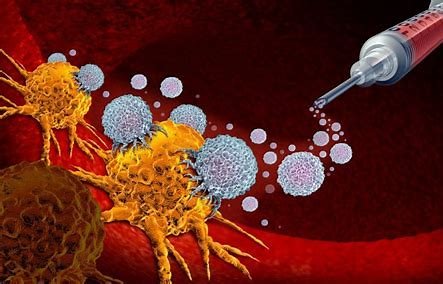TransCode Therapeutics Reports Positive Preclinical Results with its Immunotherapy Candidate, TTX-RIGA, in Melanoma
01 February 2023 | Wednesday | News

Image Source : Public Domain
TransCode Therapeutics, Inc. (Nasdaq: RNAZ), an RNA oncology company committed to more effectively treating cancer using RNA therapeutics, today reported successful preclinical proof-of-mechanism studies with its immunotherapy candidate, TTX-RIGA, in melanoma.
TTX-RIGA, a novel immunotherapeutic candidate for the treatment of cancer, is designed to work by binding to an intracellular receptor called RIG-I (retinoic acid-inducible gene I). This is expected to result in targeted activation of innate immunity in the tumor microenvironment. Recent developments in the use of pattern recognition receptors (PRRs) such as RIG-I aim to harness the innate power of the immune system for cancer therapy. TransCode believes that understanding how to recruit PRRs, such as RIG-I, in a tumor-selective manner is critical for its adoption in the clinic.
Similar immunotherapeutics of others have been shown to induce complete tumor regressions in animals and have triggered immunity against the tumor. However, those immunotherapeutics are often administered directly into the tumor to avoid the toxicity resulting from activation of an adverse immune response against healthy tissues. This mode of administration has not proven clinically effective due to limited access to the tumor cells, especially in the context of disseminated metastatic cancer.
TransCode seeks to address this challenge by developing a strategy for tumor-selective activation of an immune response specific to cancer cells using systemic administration with its proprietary nanoparticle delivery system, TTX. TransCode anticipates that Immune activation will not be triggered in healthy tissues that do not express the target, but rather will be selectively activated in tumors and metastases that do express the target.
In preclinical studies, TransCode’s delivery of TTX-RIGA inside tumors and metastases generated an RNA-based agonist of the RIG-I gene, targeting activation of innate immunity in the tumor microenvironment in multiple solid tumors, holding promise for the development of a novel class of immunotherapeutics for cancer treatment.
The publication entitled “Template-Directed RIG-I Agonist Assembly for Targeted Cancer” was published at BioRxiv (https://www.biorxiv.org/content/10.1101/2022.12.08.519592v1.full). “The agonist comprises a single stranded RNA oligonucleotide modified with a 5’-triphosphate complementary to an endogenous microRNA enriched in tumor cells. The template-directed strategy we are employing moves us closer to making RIG-I a clinically relevant target in oncology because it achieves targeted activation of innate immunity in the tumor microenvironment in the context of systemic agonist injection,” commented Zdravka Medarova, PhD, co-founder and CTO of TransCode. “As with prior studies, we believe the data from this preclinical study further support advancement of TTX-RIGA into animal studies slated to begin in February 2023. The opportunity for systemic, yet tumor-selective activation of innate immunity using the template-directed model could represent an important step towards effective application of RIG-I and other PRR-agonists for cancer therapy in the clinical setting.”
“We believe that demonstrating successful preclinical results with TTX-RIGA is an important step in the preclinical development process and further de-risks our pipeline that includes multiple RNA approaches including RNAi, PRR, mRNA vaccines and gene editing with CRISPR, all of which utilize our proprietary delivery platform,” added Michael Dudley, co-founder, president and CEO of TransCode.
Dudley added, “Additionally, as we have previously indicated, we received written authorization from FDA allowing us to proceed with our Phase 0 first-in-human (FIH) clinical trial with our lead candidate, TTX-MC138, in cancer patients with advanced solid tumors. We intend to proceed with patient enrollment as soon as possible.” TTX-MC138 targets microRNA-10b, believed to drive metastatic disease. TTX-MC138 has been validated preclinically in multiple cancer models including metastatic breast cancer and pancreatic cancer and has previously been shown to induce durable regression of metastatic disease in murine models of disseminated breast cancer and pancreatic cancer.
Most Read
- The New AI Gold Rush: Western Pharma’s Billion-Dollar Bet on Chinese Biotech
- Top 25 Biotech & Biopharma Leaders in Sustainable Innovation, 2025
- China’s Biopharma Dealmaking Surges in H1 2025, Driven by Record Licensing and Oncology Focus
- Chikungunya in China: How a “Forgotten” Arbovirus Found the Perfect Storm
- How Innovation Gaps in Biopharma Raise New Safety Concerns
- Smart Implants and the Future of Musculoskeletal Injury Treatment
- How Ethical Gaps in Psychiatry Could Undermine Biopharma Progress
- The Evolving Landscape of Women’s Health Innovation in the Asia-Pacific
- Using NLP-Driven Decision Support in Emergency Health Assistance
- Taiwan Steps Into the Global Spotlight With a New Cancer Therapy
- The Role of Unique Device Identification (UDI) in Tracing Medical Device Safety
- The Importance of a Patient’s Mental Health During Clinical Trials
Bio Jobs
- The State of Biotech and Life Science Jobs in Asia Pacific – 2025
- Avantor’s New CEO Ligner Aims to Unlock Global Potential and Deliver Shareholder Value
- AstraZeneca Commits $50 Billion to U.S. Expansion by 2030 in Biggest-Ever Global Investment
- Thermo Fisher, SAMRC, and South Africa’s Department of Science and Innovation Launch CATIR to Nurture Next-Gen Scientists
- Cube Biotech Appoints Former Sartorius CEO Dr. Joachim Kreuzburg to Board of Directors
- FDA’s AI Transition Marks a Turning Point in Drug Review: Industry Faces Pressure to Adapt Amid 20% Workforce Cut
- WuXi XDC Completes Mechanical Build of Singapore Bioconjugate Manufacturing Hub
News
Editor Picks











